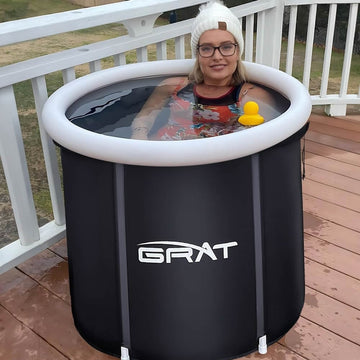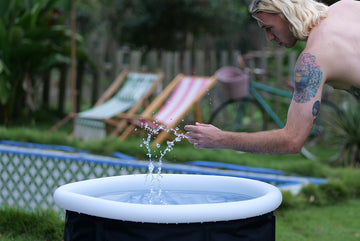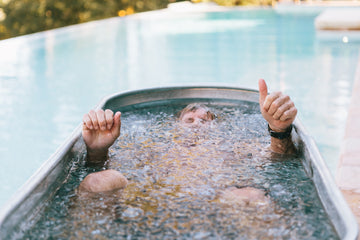Beyond its physical recovery benefits, growing research indicates that cold water immersion also positively impacts mental health. Not only does it help alleviate anxiety and depression, but it also enhances focus and mental resilience. This article will delve into how cold baths influence our “brain.”
1. Ice Baths and the Nervous System
- Activates the Sympathetic Nervous System: Cold water triggers the body's “fight or flight” response, releasing adrenaline and noradrenaline to boost alertness.
- Increases Dopamine Levels: Studies show that brief cold exposure can elevate dopamine levels by 2–3 times, promoting feelings of pleasure and motivation.
2. Alleviating Anxiety and Stress
- Cold immersion lowers cortisol (the stress hormone) levels.
- Regular ice baths train the body to adapt faster to stress, building psychological resilience.
- Many users report reduced anxiety and greater emotional stability after ice baths.
3. Enhance Focus and Productivity
- The alertness from cold water lasts for hours.
- Morning ice baths help you quickly enter a focused state.
- Many entrepreneurs and programmers use ice baths as a “day-starting ritual.”
4. How to Practice Safely?
- Start with 3–5 minute morning ice baths at 12–15°C (54–59°F).
- Beginners may transition from cold showers to ice baths.
- Combine with deep breathing to manage mental tension.
Ice baths not only strengthen the body but also sharpen the mind. For modern high-stress individuals, they offer a simple, natural mental wellness tool.











